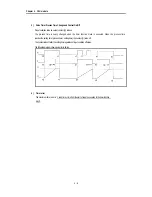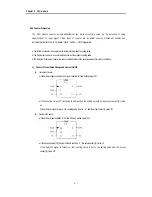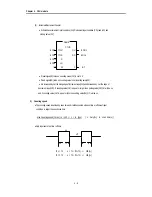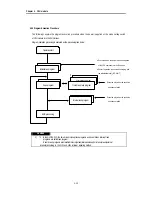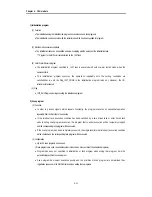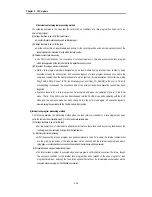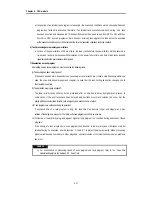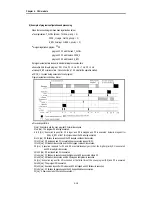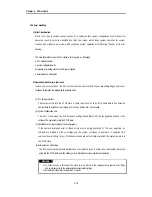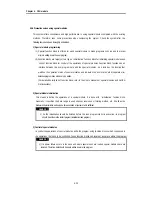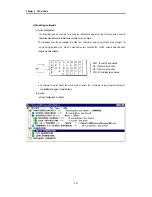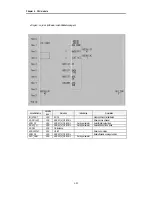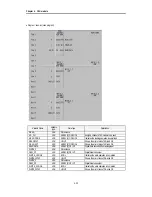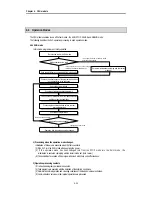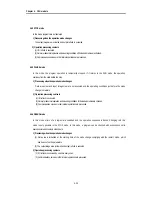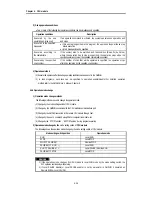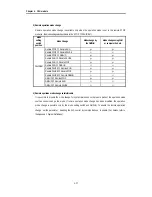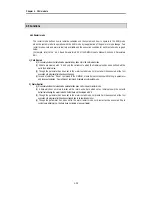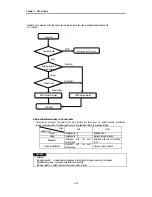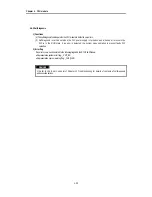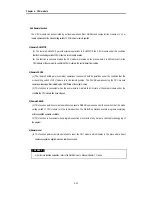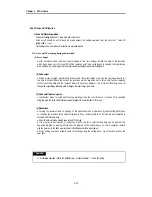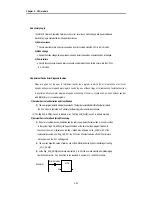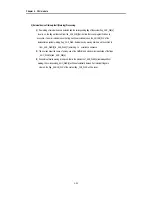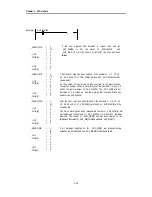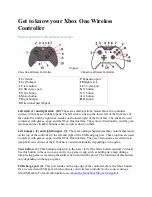
Chapter 4. CPU module
4 - 20
4.3.5 Precautions when using special modules
This system offers convenience and high performance in using special modules compared with the existing
methods. Therefore, take some precautions when composing the system. Check the system after the
following items have been thoroughly understood.
1) Special module programming
(1) Special function block is offered for each special module to make programs concise and to prevent
errors in writing down the user program.
(2) Function blocks are largely of two types. ‘Initialization’ function block for initializing special modules and
‘control’ function block for control of the operations of special modules. Function block functions as an
interface between the user program data and the special modules. As it includes the function that
watches the operation status of special modules and indicates the error status, other separate error
detection program does not have to be written.
(For detailed description of function block, refer to the User’s Manuals of special modules and GLOFA-
GM instructions.)
2) Special Module Initialization
This means to define the operations of a special module. It is done with ‘initialization’ function block.
Generally, it specifies the data range to used channel, resolution or filtering method, etc. It defines the
hardware characteristics and only one time execution at system start is sufficient.
REMARK
1) As the initialization should be finished before the scan program starts its execution, its program
should be written in the restart program (initialization task program).
3) Control of special modules
In control the operations of special modules, write the program using function blocks which correspond to
the operations that have to be controlled. These function blocks can locate at any place within the program.
REMARK
1) If a power failure occurs in the base unit where special units are loaded, special modules data are
removed. Therefore, data should be newly written down in the program.

